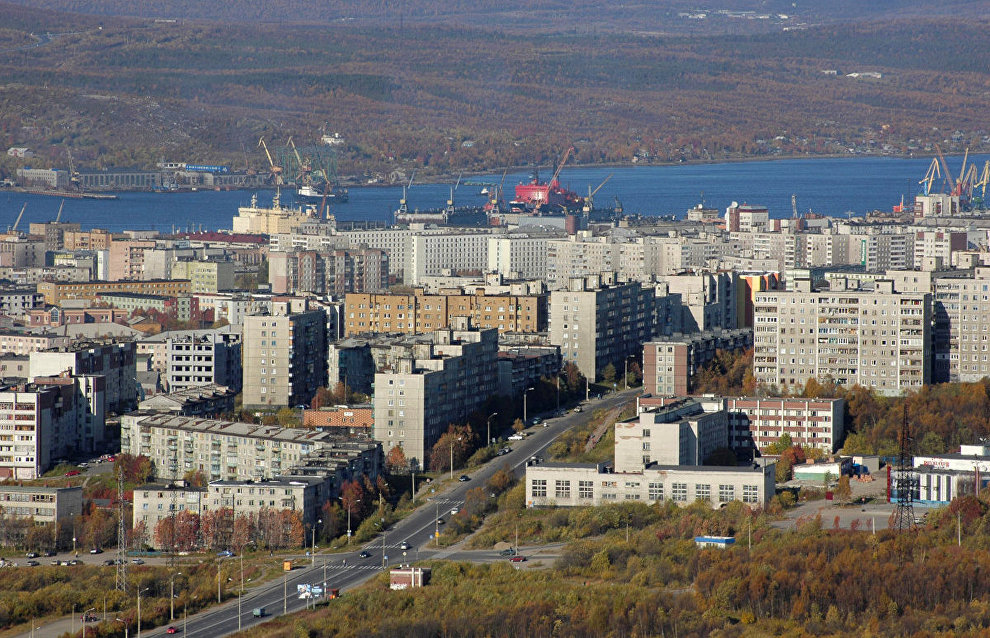Each Arctic region to get its own development strategy
Speaking at a plenary session at the fifth international conference, The Arctic: Shelf Projects and Sustainable Development of the Regions (Arctic 2020), Deputy Minister for the Development of the Russian Far East and Arctic Alexander Krutikov described the priority projects for the development of the Arctic regions under today's economic conditions. He said the ministry would help the cities along the Northern Sea Route.
Murmansk is one of these cities. It is the only ice-free port in the Arctic.
"The city could become one of the two hubs for the northern maritime transport corridor and a service center for shelf projects in Russia. When Novatek starts the construction of large-capacity maritime facilities, the region will become one of the world's biggest centers for the development of shipbuilding technology. Several raw material centers specializing in the production and enrichment of solid minerals will be built," said Alexander Krutikov at the session.
He added that the region needs infrastructure for acquiring knowledge and data in the area of the Arctic development and that this goal would require updating the research and academic infrastructure.
In addition to the traditional oil and mineral centers, the Yamalo-Nenets Autonomous Area will have two new development projects, notably the Pechora LNG and Port Indiga projects.
"We are looking after their investors. These are real projects that will receive government support," Alexander Krutikov noted.
The main project in another Arctic region, Chukotka, is the Baimsky copper and porphyry deposit that will stimulate development of the road and energy infrastructure and the modernization of the Pevek and Provideniya ports. The new Arctic University will also enhance the sustainability of the region. The university will operate based on advanced remote technology and will support local research programs.
Alexander Krutikov said the Yamalo-Nenets Autonomous Area would provide Russia with a key position in the LNG market within the next 15 years. "It is here that the first high-technology gas chemical complexes will be built, and oil and gas services will make rapid headway. To make the region sustainable we will create conditions for producing hard-to-access oil and gas condensate," Krutikov said.
In the Arctic part of Karelia emphasis will be made on the development of the construction industry and raw material centers with primary focus on the eastern Karelia copper, gold and molybdenum ore zone, aquaculture and forestry.
The deputy minister said the development of Vorkuta poses the greatest challenge. This is the only municipality in the Republic of Komi that is now part of the Arctic.
"Coal mining is on the decline and the city itself is shrinking. We must find sources for its development that will allow us to keep Vorkuta on Russia's map. The city has a number of competitive advantages and we need to develop them," he added.
Speaking about the situation in Yakutia, Krutikov noted that the region's life and development are directly linked to the Anabar, Lena, Yana, Indigirka and Kolyma rivers. Dredging them and developing navigation on these rivers are critical to the Arctic part of Yakutia. Large deposits of solid minerals that the ministry intends to develop are located in the basins of these rivers.
"We will carry out a pilot project in Yakutia to build a network of trade and logistics centers for delivering goods to the northern territories. It is aimed at reducing the cost of food supplies. And, of course, it is important to focus on the North-Eastern Federal University as the development institute for the northern Arctic," Krutikov summed up.
He also praised a very high economic potential in the Arkhangelsk Region where much has to be done.
"This region has natural conditions for developing shipbuilding and ship repair. We will also develop raw material centers there. But I think that the main competitive advantage of Arkhangelsk is that it has all the prerequisites for developing as a federal center for science and education in the Arctic. The city is home to the only Arctic university with huge experience and potential. And I'll be straight with you, it doesn't matter if it receives the formal status of a national university, something that is debated today. Either way, we will support its progress as a full-fledged institute of Russian Arctic development," Krutikov said.
The deputy minister added that the work on the foundations of government policy in the Arctic through 2035 is complete and is waiting for the President's approval.
